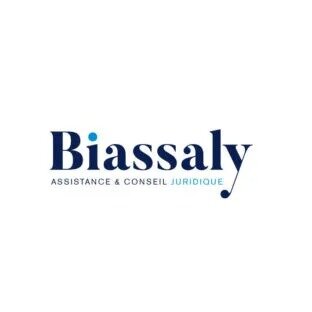Best Employment & Labor Lawyers in Libreville
Share your needs with us, get contacted by law firms.
Free. Takes 2 min.
List of the best lawyers in Libreville, Gabon
About Employment & Labor Law in Libreville, Gabon
Employment and labor law in Libreville, Gabon, encompasses the legal rights and obligations of both employers and employees. The labor market in Gabon is regulated by various laws that aim to protect workers' rights while promoting fair labor practices and economic growth. Key areas include employment contracts, wages, working conditions, benefits, termination of employment, and dispute resolution. This legal framework is essential in balancing the interests of the workforce and employers, thereby contributing to the social and economic development of Gabon.
Why You May Need a Lawyer
There are various reasons why individuals or organizations might seek legal assistance in employment and labor law matters. Some common situations include:
- Employment Disputes: If you are facing disputes with your employer or employee over contracts, termination, or workplace treatment, a lawyer can help resolve these issues.
- Contract Negotiations: Drafting or revising employment contracts to ensure they comply with local laws and protect your interests.
- Workplace Harassment or Discrimination: If you experience or need to address harassment or discrimination in the workplace, legal guidance can be crucial.
- Compliance with Labor Laws: Employers may need legal advice to comply with Gabon's labor laws, avoiding potential fines and legal repercussions.
- Wage and Hour Disputes: Issues such as unpaid wages, overtime disputes, or misclassification of workers may require legal intervention.
Local Laws Overview
Libreville, being the capital of Gabon, is under the jurisdiction of national labor laws, primarily the Labor Code of Gabon. Some key aspects include:
- Employment Contracts: All employment relationships should be formalized through a written contract outlining terms and conditions.
- Working Conditions: Legislation covers working hours, occupational safety, and health standards that must be adhered to protect employees.
- Minimum Wage: Gabon has stipulated a national minimum wage, ensuring a baseline for worker compensation.
- Termination of Employment: Laws specify valid reasons for termination and the procedures that must be followed for lawful dismissal.
- Collective Bargaining: Employees have the right to join trade unions and engage in collective bargaining for improved work conditions.
Frequently Asked Questions
What is the minimum wage in Gabon?
The minimum wage is set by the government, and it is periodically reviewed to align with the cost of living and economic conditions.
How many working hours are legally allowed per week?
The standard working week in Gabon is typically 40 hours, but specific industries may have variations as defined by labor agreements or the law.
Can an employer terminate an employee without notice?
No, the Labor Code requires a notice period or corresponding compensation unless dismissal is for serious misconduct.
Are employees entitled to paid leave?
Yes, employees are entitled to annual paid leave as well as paid leave for public holidays and personal emergencies, according to the law.
What should I do if I face discrimination at work?
It is advisable to document the incidents and consult with a lawyer or report to the relevant authorities for guidance and action.
Are there laws protecting maternity rights?
Yes, Gabonese labor laws provide maternity leave and job protection for expectant and new mothers.
How are overtime hours compensated?
Overtime work must be compensated at a higher rate than regular hours, as stipulated by the Labor Code.
Do labor laws in Gabon apply to expatriate workers?
Yes, labor laws apply to all employees working in Gabon, including expatriates, unless international agreements state otherwise.
What role do trade unions play in Gabon?
Trade unions advocate for workers’ rights, engage in collective bargaining, and seek to improve working conditions and wages.
Where can I report labor law violations?
Lodging complaints with the Ministry of Labor or consulting a labor lawyer are recommended steps for addressing violations.
Additional Resources
Individuals seeking more information or legal assistance in employment and labor matters can consider the following resources:
- Ministry of Labor, Employment, and Social Protection: This governmental body oversees labor regulations and workers' welfare.
- Local Labor Unions: These organizations can provide support and guidance on labor rights and representation.
- Professional Legal Associations: These can refer you to qualified lawyers specializing in labor and employment law.
Next Steps
If you need legal assistance in employment or labor issues, consider taking the following steps:
- Consultation: Schedule a meeting with a qualified employment lawyer to discuss your situation and options.
- Documentation: Gather all relevant documents, such as employment contracts, correspondence, and any evidence related to your case.
- Legal Strategy: Work with your lawyer to develop a strategy to address your legal concerns effectively and efficiently.
- Stay Informed: Keep updated on any changes in local labor laws that may affect your rights or obligations.
Lawzana helps you find the best lawyers and law firms in Libreville through a curated and pre-screened list of qualified legal professionals. Our platform offers rankings and detailed profiles of attorneys and law firms, allowing you to compare based on practice areas, including Employment & Labor, experience, and client feedback.
Each profile includes a description of the firm's areas of practice, client reviews, team members and partners, year of establishment, spoken languages, office locations, contact information, social media presence, and any published articles or resources. Most firms on our platform speak English and are experienced in both local and international legal matters.
Get a quote from top-rated law firms in Libreville, Gabon — quickly, securely, and without unnecessary hassle.
Disclaimer:
The information provided on this page is for general informational purposes only and does not constitute legal advice. While we strive to ensure the accuracy and relevance of the content, legal information may change over time, and interpretations of the law can vary. You should always consult with a qualified legal professional for advice specific to your situation.
We disclaim all liability for actions taken or not taken based on the content of this page. If you believe any information is incorrect or outdated, please contact us, and we will review and update it where appropriate.
Browse employment & labor law firms by service in Libreville, Gabon
Libreville, Gabon Attorneys in related practice areas.









